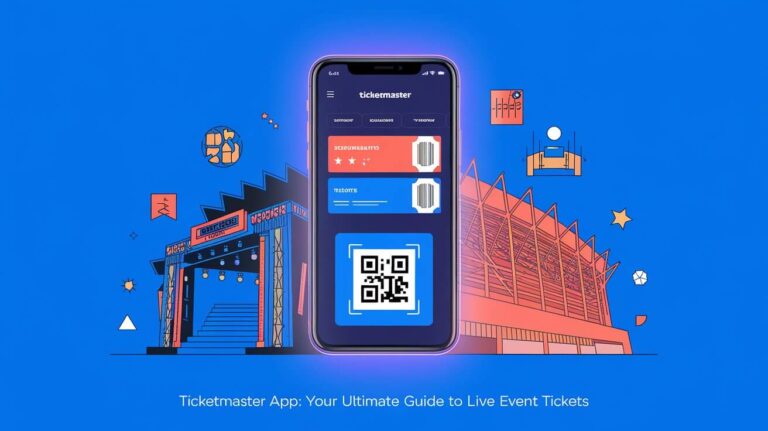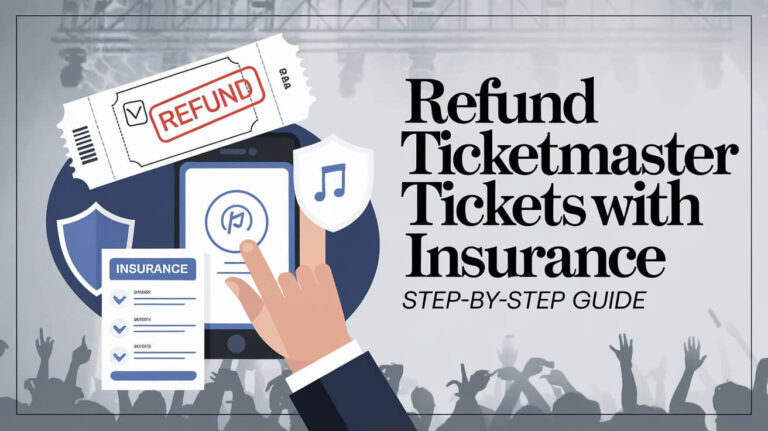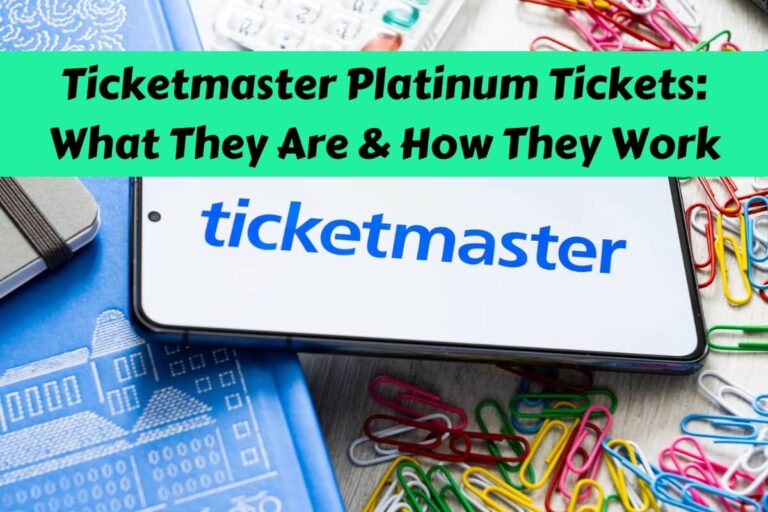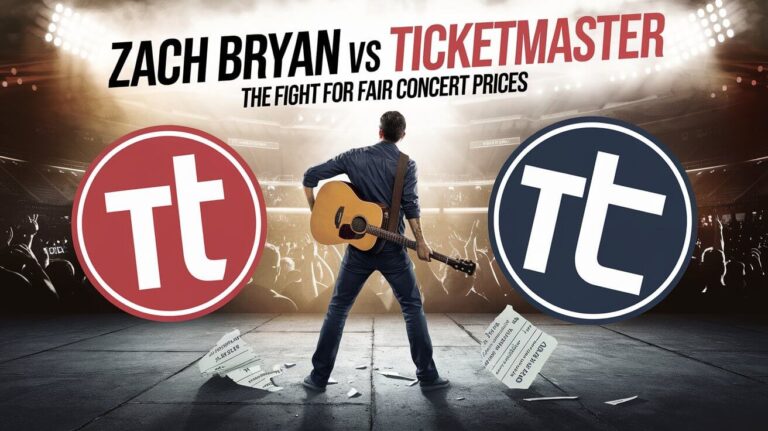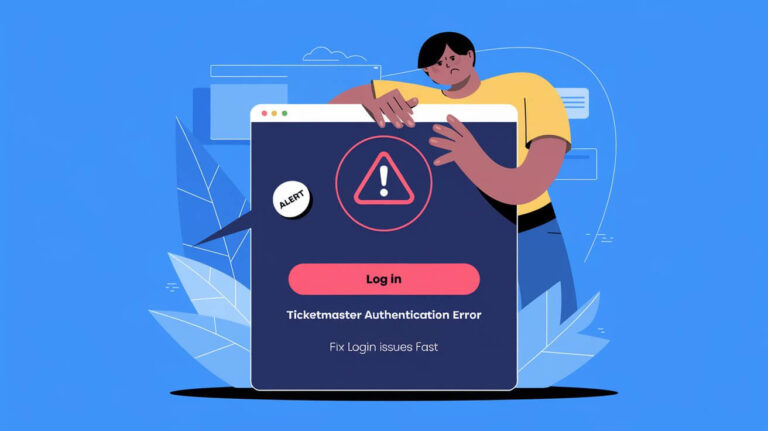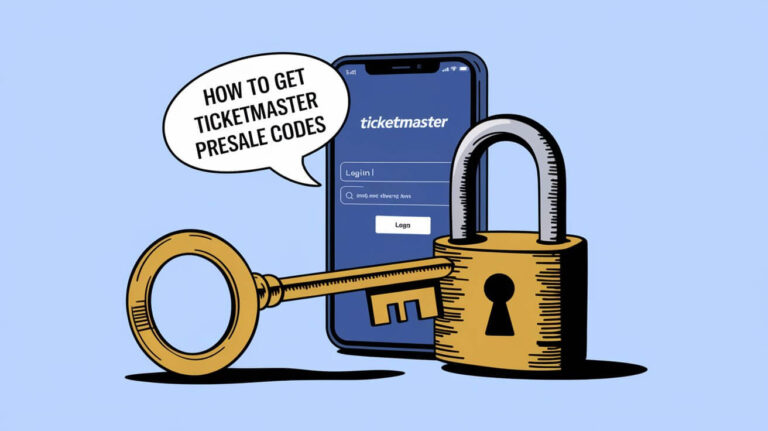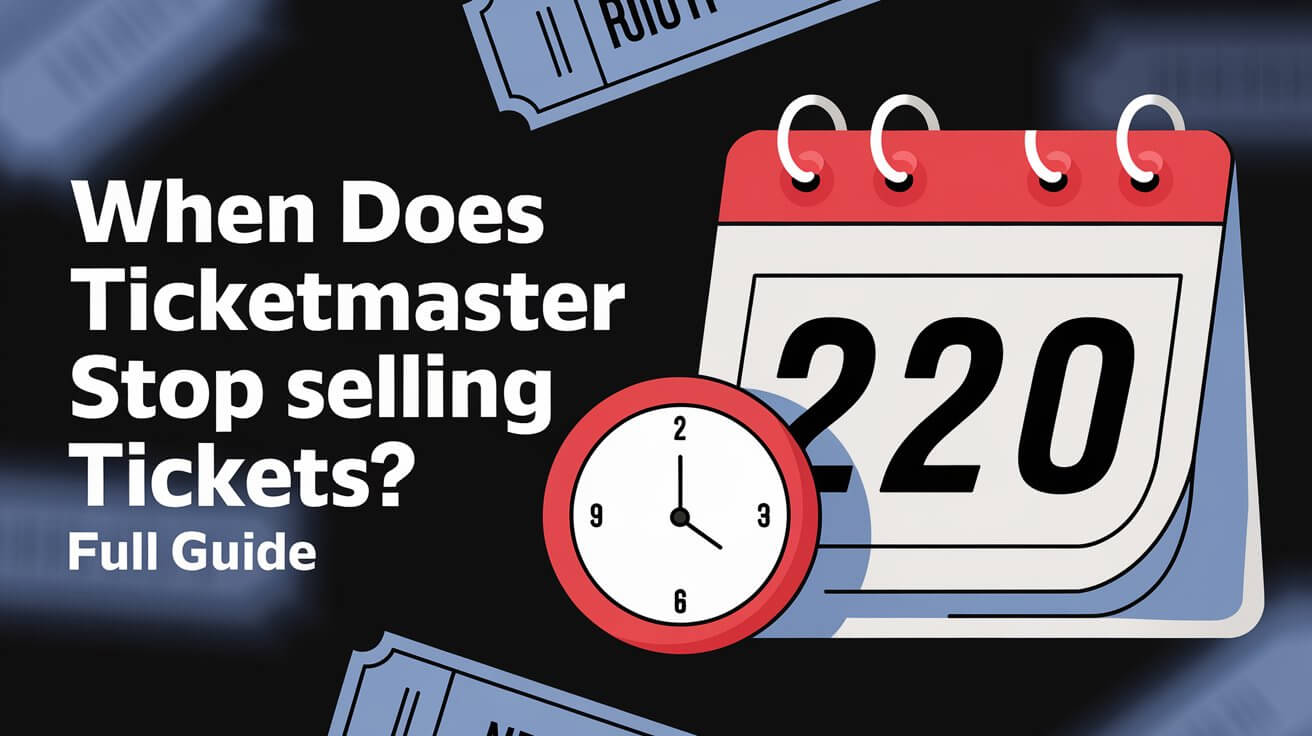
Ticketmaster typically stops selling tickets one hour after an event starts. But this isn’t a hard-and-fast rule. The exact cutoff time can vary based on several factors. Let’s explore the ins and outs of Ticketmaster’s ticket sales policies, last-minute buying strategies, and what to do if you miss the cutoff.
Ticketmaster’s Ticket Sales Cutoff Times
Ticketmaster’s approach to ending ticket sales isn’t one-size-fits-all. While they often stop selling an hour after the event kicks off, it’s not set in stone.
Standard Cutoff Policies
Most of the time, Ticketmaster follows a simple rule. They keep selling tickets until 60 minutes after the event starts. This gives latecomers a chance to snag seats, even if they’ve missed the opening act.
But why an hour? It’s a balance. They want to give fans every chance to attend. At the same time, they need to respect the event’s flow and the venue’s needs.
Variations by Event Type
Different events might have different rules. A multi-day music festival could sell tickets throughout its run. A sports game might cut off sales at kickoff. It all depends on what the organizers want.
For instance, baseball games often allow ticket sales well into the game. Concerts, on the other hand, might stop sales earlier to avoid disrupting the performance.
Factors Affecting Ticket Sale End Times
Several things can influence when Ticketmaster stops selling tickets. It’s not just about Ticketmaster’s policies. Other players have a say too.
Venue Policies
Venues often have their own rules about ticket sales. Some might want sales to stop before the main act starts. Others might be more flexible.
These policies can stem from various concerns:
- Security checks
- Crowd management
- Minimizing disruptions
Always check the venue’s website or contact them directly if you’re unsure about their specific policies.
Artist or Team Preferences
Sometimes, the performer or team gets to call the shots. They might want ticket sales to end early to ensure a settled audience. Or they might be cool with late arrivals.
For example, comedy shows often have strict no-late-entry policies to avoid disrupting the performance. In contrast, some music festivals encourage day-of ticket purchases to boost attendance.
Event Start Time
The event’s start time plays a big role too. For a late-night concert, Ticketmaster might extend sales longer. An early morning event might see sales stop sooner.
It’s all about practicality. If an event starts at 11 PM, selling tickets until midnight makes sense. But for a 9 AM start, cutting off sales at 10 AM might not be helpful for anyone.
Last-Minute Ticket Availability
Even when you think all hope is lost, tickets can pop up at the eleventh hour. Ticketmaster has a few tricks up its sleeve for last-minute buyers.
Day-of-Show Releases
Sometimes, extra tickets become available on the day of the event. This can happen for a few reasons:
- Production holds get released
- Obstructed view seats open up
- Cancellations free up tickets
Keep an eye on Ticketmaster right up until the event. You might get lucky with a surprise ticket drop.
Unexpected Ticket Drops
Ticketmaster might release tickets in waves. This strategy keeps fans checking back and can build excitement.
These drops can happen anytime. It could be weeks before the event or hours before. Stay alert and ready to pounce when tickets appear.
Ticketmaster’s Face Value Exchange
Ticketmaster’s Face Value Exchange is a game-changer for last-minute ticket hunters. It’s a platform where fans can resell tickets at face value.
How It Works
The Face Value Exchange is simple:
- Ticket holders list unwanted tickets
- Other fans can buy these tickets at the original price
- No inflated resale prices
This system helps combat scalping and gives more fans a fair shot at attending events.
Listing Deadlines
Fans can list tickets on the Face Value Exchange until one hour after the event starts. This matches Ticketmaster’s general sales cutoff.
But remember, just because tickets are listed doesn’t mean they’ll sell. The closer to the event, the less likely a sale becomes.
Tips for Getting Late Tickets
Don’t give up if you’re looking for tickets close to an event. There are still ways to score seats, even at the last minute.
Checking Multiple Platforms
Ticketmaster isn’t the only game in town. Check other authorized resale sites too. Each platform might have different inventory.
Some options to explore:
- StubHub
- SeatGeek
- Vivid Seats
But be cautious. Stick to reputable sites to avoid scams.
Setting Price Alerts
Many ticket sites let you set price alerts. Use this feature to your advantage. Set an alert for your target price range.
This way, you don’t have to keep refreshing the page. You’ll get notified when tickets in your budget become available.
What Happens After Sales Stop
When Ticketmaster stops selling tickets, it’s not necessarily the end of the road. There are still options for determined fans.
Box Office Policies
Many venues sell tickets at the box office right up until the event starts. Sometimes, they even sell after the event begins.
Box office policies vary widely. It’s worth calling the venue directly to ask about their last-minute ticket sales.
Secondary Market Options
When official sales end, the secondary market often heats up. Sites like StubHub or VividSeats might still have tickets available.
But be prepared for higher prices. Last-minute tickets on the secondary market can be expensive. Weigh the cost against how badly you want to attend.
Exceptions to Standard Sales Cutoffs
While Ticketmaster has general rules, exceptions do happen. Some events break the mold when it comes to ticket sales.
High-Demand Events
For super popular events, Ticketmaster might extend sales. They could keep selling tickets well into the event if there’s enough demand.
This often happens with multi-day festivals or long-running shows. The goal is to maximize attendance and profits.
Rescheduled Shows
When events get postponed or rescheduled, all bets are off. Ticketmaster might reopen sales or extend the selling period.
In these cases, keep a close eye on Ticketmaster’s site. They’ll usually announce any changes to ticket availability.
Planning Ahead: Best Practices for Ticket Buying
While last-minute tickets can work out, planning ahead is often the best strategy. Here’s how to increase your chances of getting tickets without the stress.
Early Purchase Strategies
The early bird often gets the worm in ticket sales. Here are some tips:
- Sign up for presales
- Join fan clubs for early access
- Use Ticketmaster’s Verified Fan program
These methods can help you beat the rush and secure tickets before general sales even begin.
Weighing Waiting vs. Buying Early
Sometimes, waiting can pay off. Prices might drop closer to the event. But it’s a gamble. You risk the event selling out.
Consider these factors:
- How popular is the event?
- Are you okay with potentially missing out?
- What’s your budget?
Weigh these questions carefully before deciding to wait for last-minute tickets.
Conclusion
Ticketmaster’s ticket sales cutoff isn’t as simple as it seems. While they often stop selling an hour after the event starts, many factors can change this.
Your best bet? Be prepared. Check often, use multiple platforms, and don’t be afraid of last-minute options. But also consider buying early for peace of mind.
Remember, each event is unique. What works for one might not work for another. Stay flexible, stay informed, and you’ll boost your chances of scoring those coveted tickets.
Whether you’re a planner or a last-minute decider, understanding Ticketmaster’s policies can help. Use this knowledge to your advantage, and you’ll be well on your way to your next great event experience.

